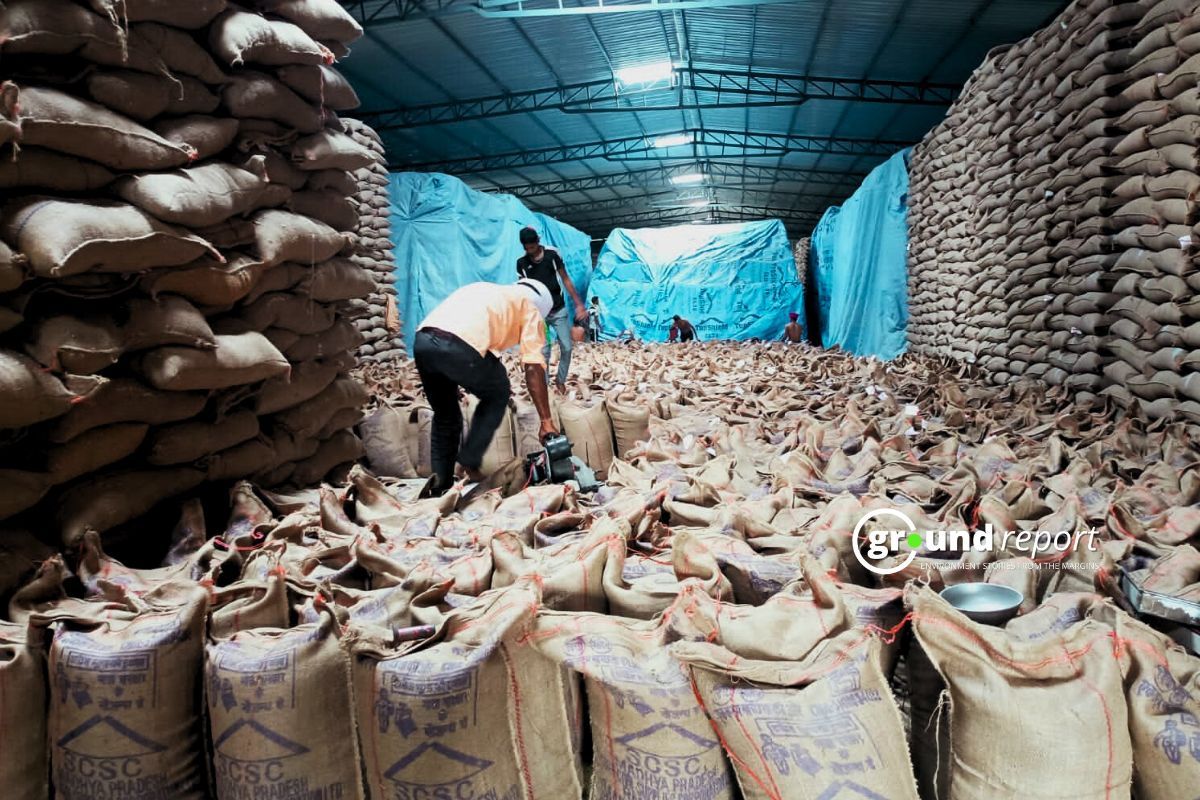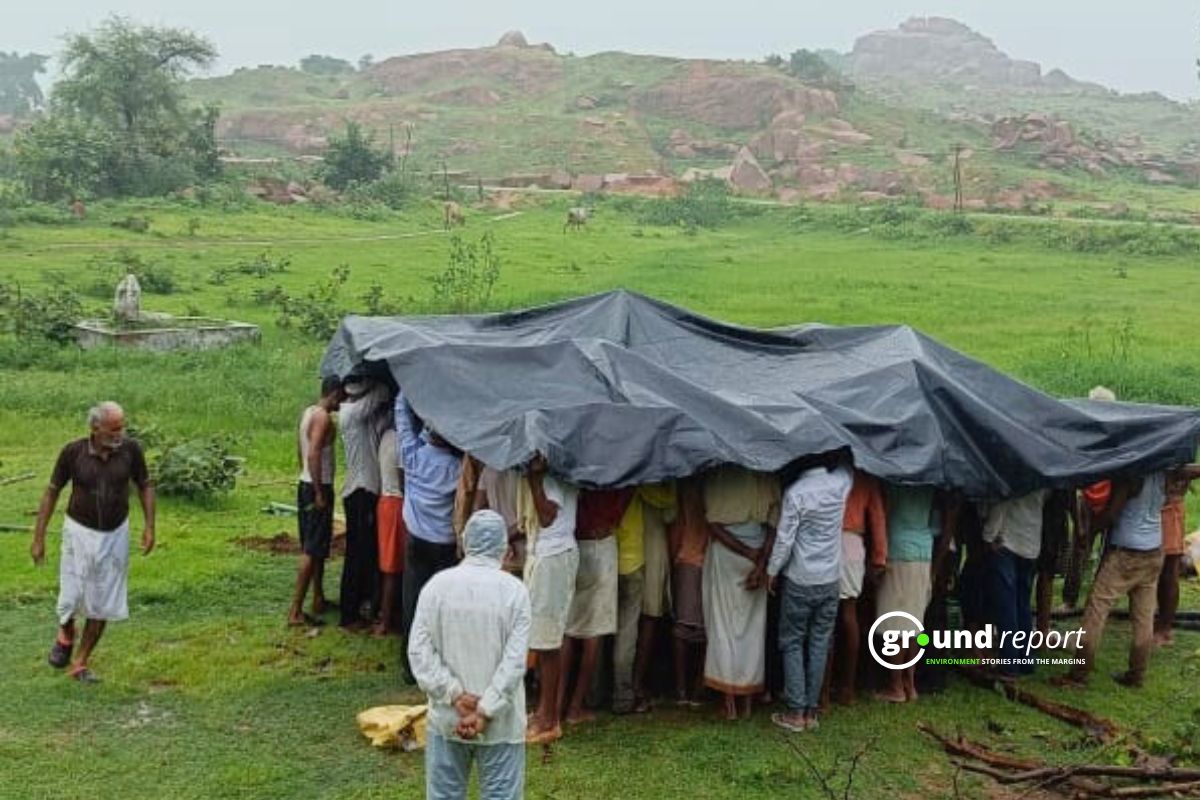“I heard about a government scheme offering grants to build warehouses on vacant agriculture land, promising lucrative monthly earnings. Tempted by the prospect of good income and a 50% investment subsidy of up to 1 crore rupees, I took a loan and built a warehouse on my three acres of land. Little did I know this dream would leave me in debt,” laments Sadaf Khan tearfully.
Sadaf Khan is a resident of Majhguwa Tola village of Pipriyakala, Seoni, Madhya Pradesh. He is operating a warehouse in the name of his wife, Kaushar Jha. He has to pay an installment of more than three lakh rupees of the loan before 30 September this month. For its recovery, the bank is issuing notices and warnings to pay the installment on time; otherwise, the property will be seized.
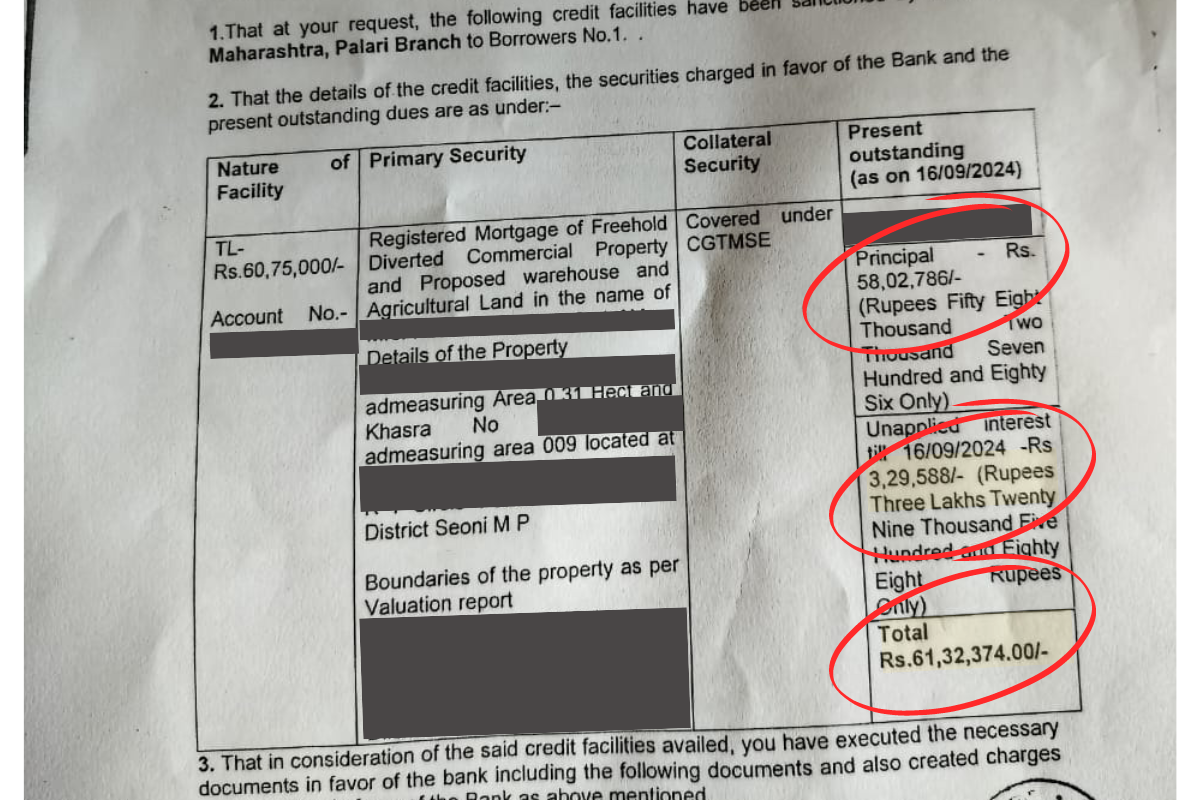
Like Khan, many farmers of Madhya Pradesh have taken subsidies under the Warehouse Subsidy Scheme, i.e. Gramin Bhandaran Yojana and built godowns in their fields in the hope of a good income, but now they are regretting their decision.
Godown construction in the state has outpaced production capacity. Most warehouses are vacant or only 20-30% full, while facing delayed rent payments. This oversupply has created financial challenges for warehouse owners.
Khan, wiping his tears, further says that
“Sir, if I had known that more warehouses have been built in the state than the production capacity, would I have taken the risk of building a godown?”
Kapil Sahu, the godown owner of Sukhi Sewania near Bhopal, has not received the rent of the godown for the last one and a half years. As a result, his financial burden has increased. His daughter is getting married after three months; if he does not get the outstanding rent soon, then the date of the marriage may have to be postponed. His wife, Kalpana Sahu, claims that
“We were mistaken in building the warehouse, and as a result, we became debtors.”
How did the warehouse business of the state start?
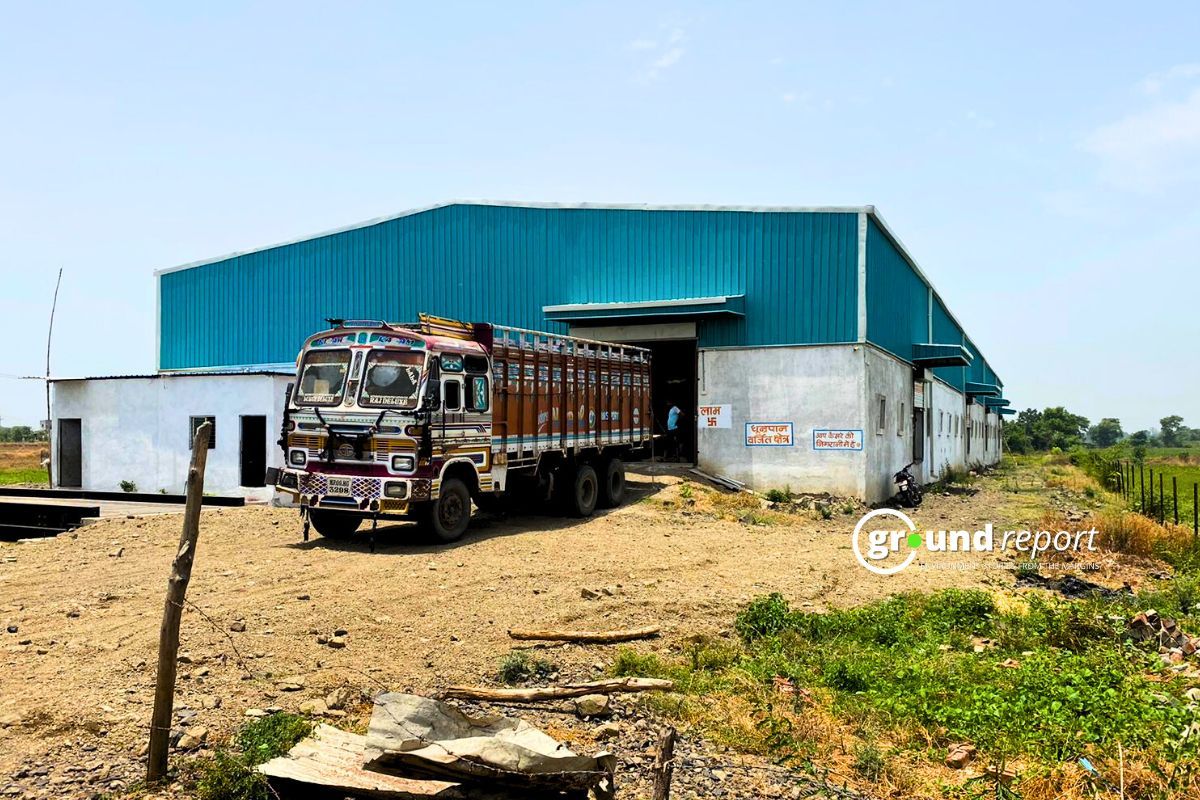
According to Navneet Raghuvanshi, state president of the Madhya Pradesh Warehouse Owners Association, In 2012, Madhya Pradesh faced a storage crisis due to record wheat production. The state government introduced the MP Warehousing and Logistics Policy, which provides subsidies to encourage warehouse construction. Despite amendments in 2018, these policies had limited impact.
The Central Government’s Gramin Bhandaran Yojana, providing subsidies through NABARD, proved more successful in promoting private warehouse construction.
Madhya Pradesh Warehouse and Logistics Corporation (MPWLC) expanded from 8 to 288 branches, now managing 9,815 warehouses with a 388 lakh metric ton (LMT) capacity. Of these, 1,603 are MPWLC-owned (31 LMT capacity), and 7,009 are private affiliated warehouses (288 LMT capacity).
Despite increasing storage capacity, utilization has declined. In 2022–23, MPWLC used only 53% of its 215 MLT capacity. In 2023-24, utilization dropped to 40% of the increased 225 MLT capacity.
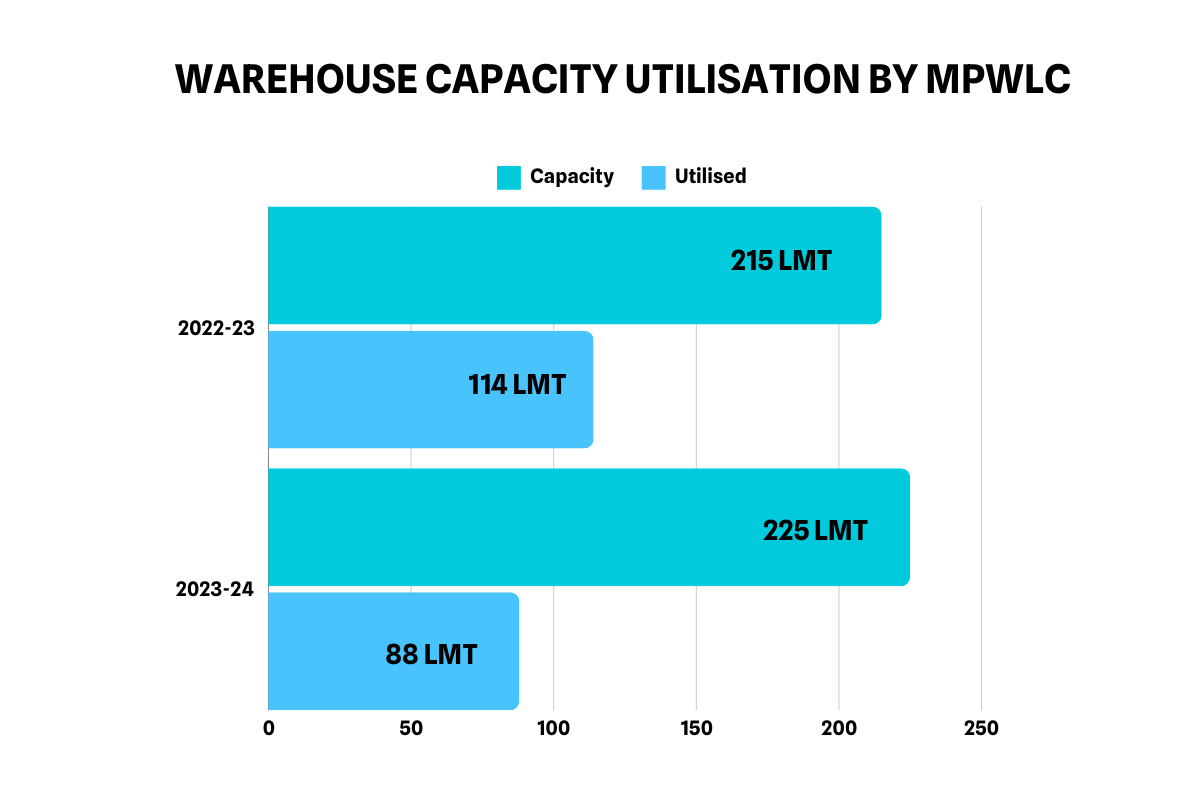
Navneet Raghuwansi says
“while state government warehouses are growing by 10% annually, wheat procurement has decreased by up to one-third compared to previous years, resulting in two-thirds of warehouses remaining empty annually.”
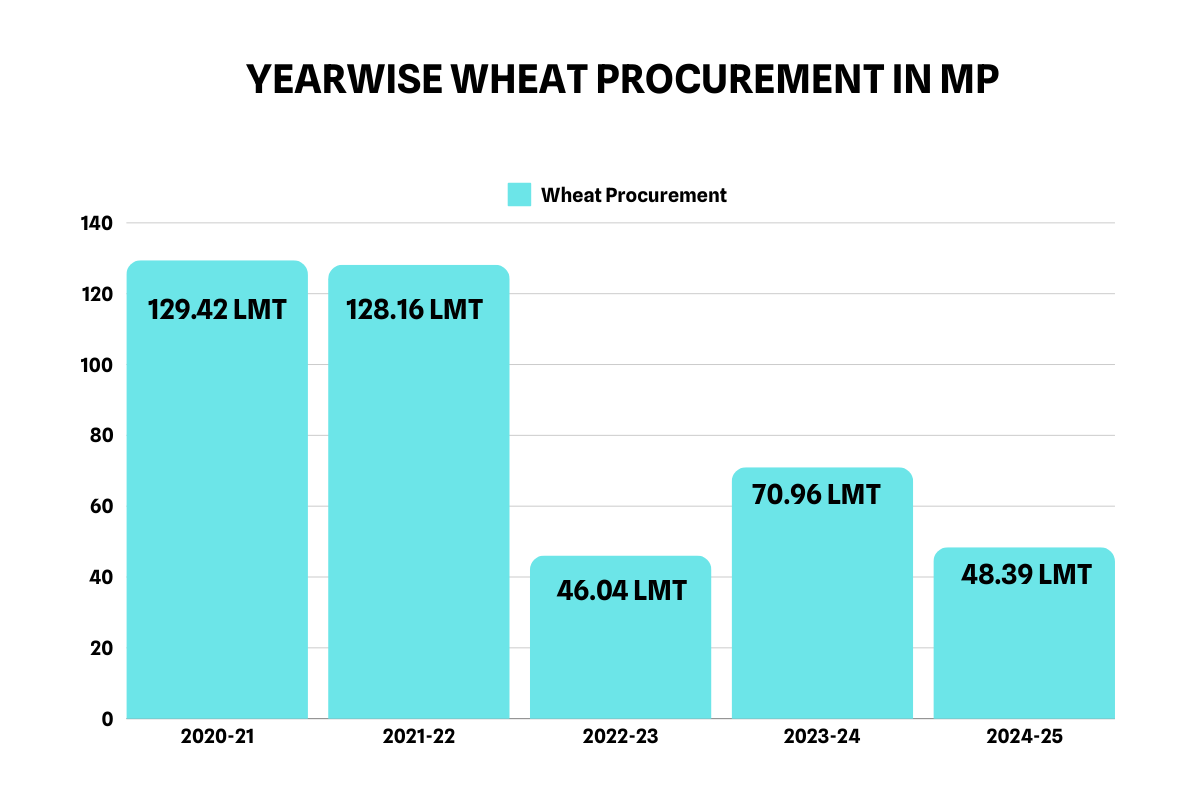
Supporting his point, MPWLC officials say that
“It is true that since Corona, farmers in the state have shown more interest in converting their fields into warehouses. As a result, the number of warehouses in the state increases by 10% every year, but the area under cultivation does not increase at the same rate. So you can understand yourself, Why do two to three-thirds of the warehouses in the state remain empty?”
Operators are running from one department to another for rent
Krishna Pati Kalyan Singh Umat, operator of Krishna Warehouse in village Balaria under Sanwer tehsil of Indore district, has complained several times on the CM helpline about not getting rent on time. But every time his complaint is closed without redressal. He alleges that
“The rent for one year is more than Rs 8 lakh, but after complaining several times, only Rs 4 lakh 28 thousand was paid, and the warehouse is also not being vacated on time. Due to this, the wheat kept in the warehouse is getting spoiled.”
According to Kalyan Singh, the officers do not receive the phone calls, and when they talk, they say it is the central government’s scheme; we can’t do anything.
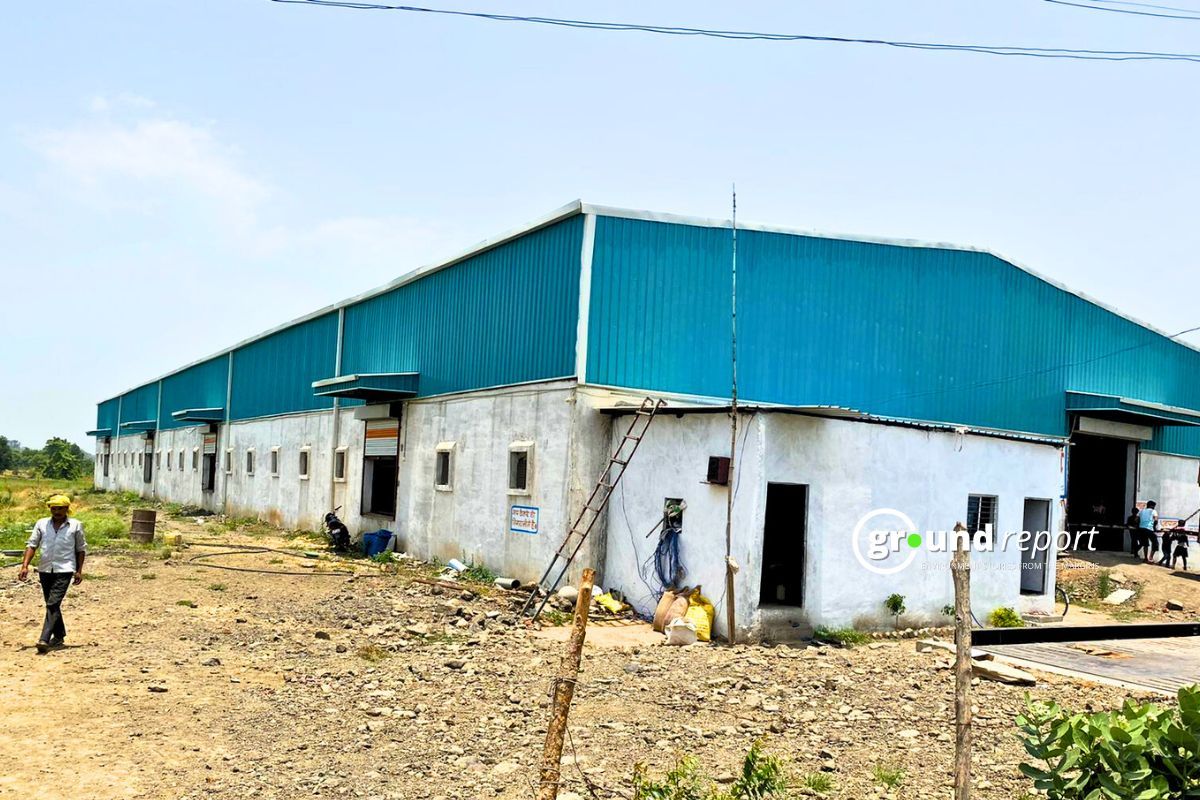
Explaining the warehouse operators’ problems in detail, KB Tiwari of the Madhya Pradesh Warehouse Owners Association told us that the Madhya Pradesh Warehousing and Logistics Corporation has not paid the warehouse operators for wheat, gram, moong, paddy, rice, and all types of grains for about two years. Due to this, there is a problem in bearing the installments of banks, insurance, salaries of employees, pesticides, and other expenses. Due to non-payment of installments to banks, accounts are becoming NPA, and notices from banks are also coming. In such a scenario, warehouse maintenance is difficult.
Tiwari says that
“We have given the warehouses on rent to MPWLC under the contract, and it is clearly mentioned in the contract that the rent will be paid every month; despite this, the warehouse operators have been waiting for the rent for the last two years.”
During this time, the association members wrote letters to the MPWLC officials, Chief Minister Mohan Yadav, Food Civil Supplies, and Consumer Protection Minister Govind Singh Rajput, requesting that they pay the outstanding rent on time. But the problem has not been resolved at any level.
Taking out a new loan to pay the instalments
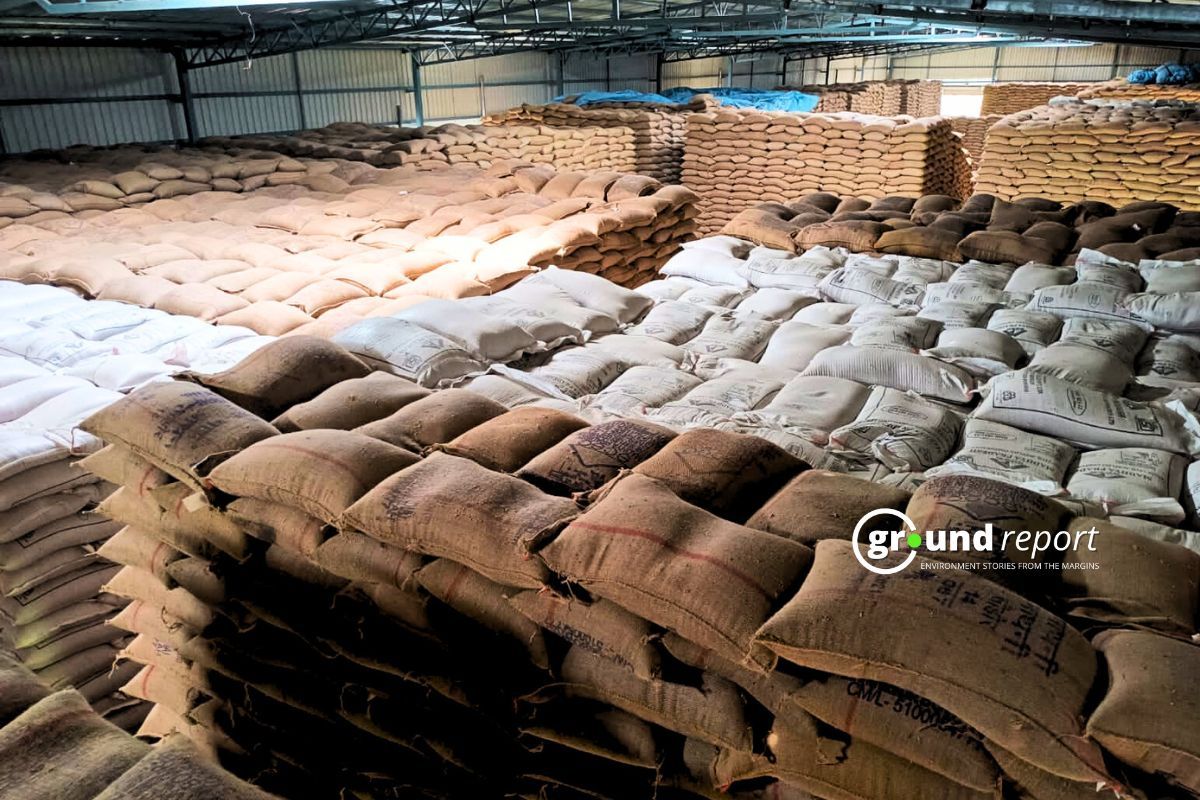
Ajay Sahu of Gram Panchayat Baktara, which falls under Budhni Janpad Panchayat of Sehore district, took a new loan from the bank three months ago, only to pay the warehouse installments. He hasn’t received rent since November 2023. Deepak Singh of his village says that
“I regret opening the warehouse; what trouble have I invited? The income has not increased; on the contrary, I have become a debtor.”
New warehouse owners are facing more problems
According to Bhopal district farmer Deepesh Rathore, new warehouse owners are facing more problems. Those whose construction work has been completed now will have to wait till the next wheat season. In such a scenario, new warehouse operators are trying to store summer crops like moong and soybean.
Officials of the Warehouse Corporation also say that those who converted their farms into warehouses about eight years ago used to get Rs 3 to 4 lakh per month for grain storage. Those who built warehouses two years ago are currently running at a loss.
Deepesh further says that if the warehouse operators get the rent and subsidy on time and get the business of full storage capacity, then the cost of building the warehouse except the cost of land can be recovered within two years because the government pays Rs. 72 to 79 per grain to the warehouse operators. Currently, a warehouse’s construction cost is around Rs. 800 per square foot.
The government has hauled Rs. 471 crore payment
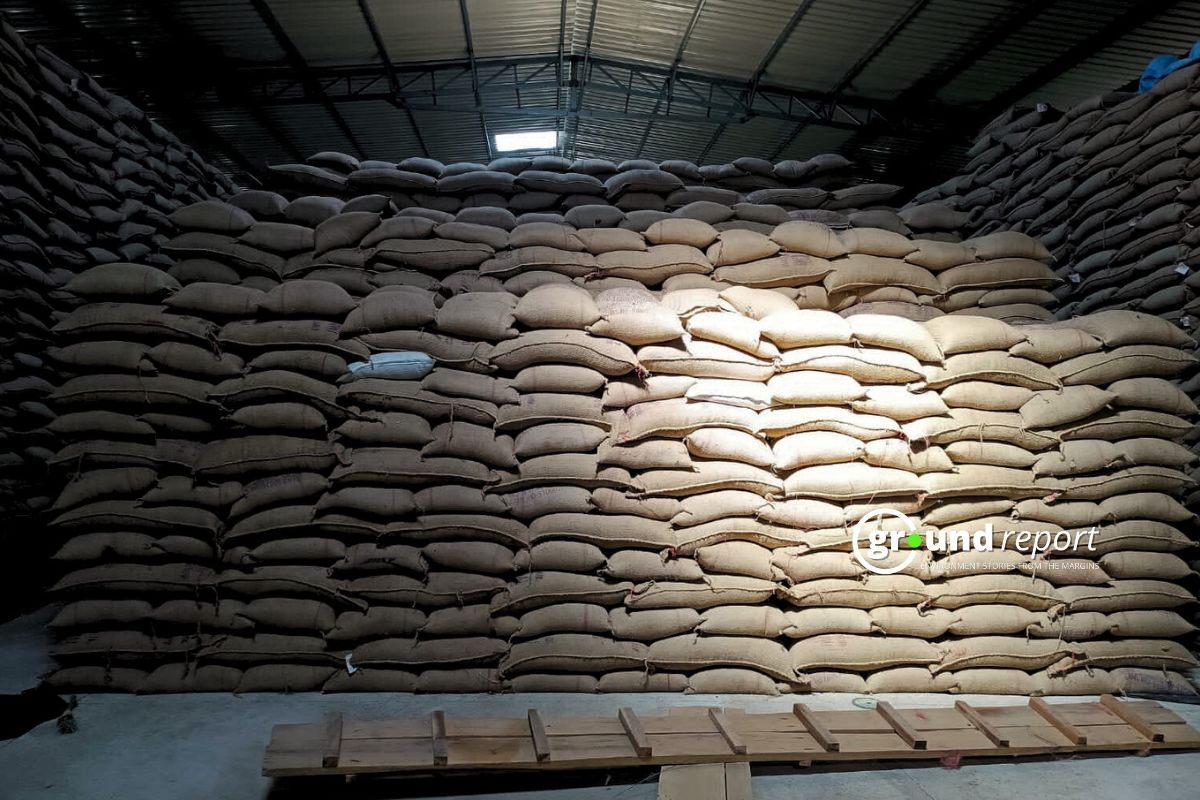
According to the Principal Secretary of Food Civil Supplies and Consumer Protection Department, Rashmi Arun Shami, information about unfit and bad wheat was being received from different areas of the state. It is estimated that about 10.64 LMT wheat in the state is unfit or bad.
On the basis of this investigation report, more than 150 warehouses in the state have been blacklisted, and the payment of about Rs. 471.96 crore to 6972 private warehouse operators has been stopped. This action has been taken on the instructions of the minister.
“Soon after the investigation is completed, the warehouse operators will be paid the outstanding rent.” she added.
The irregularities of others unfairly affect honest new warehouse owners. Swift investigations should target only offending warehouses. Given the oversupply, the government should suspend warehouse subsidy schemes to prevent farmers from accruing debt. This initiative was designed to diversify income for farmers seeking alternatives to traditional agriculture, but its implementation needs reassessment to avoid unintended consequences.
MPWLC Managing Director Sibi Chakravarthy M advises:
“Those seeking income through warehouse construction should assess the scheme’s viability, considering the state already has sufficient storage facilities.”
Sadaf Khan questions those bank officials along with the government and says that
“A common farmer can’t know the state’s warehouse needs. High-ranking officials have this information. If they had informed me when I applied, I could have avoided debt, and the government could have allocated funds more effectively. Their lack of transparency led to this situation.”
Support us to keep independent environmental journalism alive in India.
Keep Reading
The costliest water from Narmada is putting a financial burden on Indore
Indore’s Ramsar site Sirpur has an STP constructed almost on the lake
Indore Reviving Historic Lakes to Combat Water Crisis, Hurdles Remain
Indore’s residential society saves Rs 5 lakh a month, through rainwater harvesting
Follow Ground Report on X, Instagram and Facebook for environmental and underreported stories from the margins. Give us feedback on our email id greport2018@gmail.com.
Don’t forget to Subscribe to our weekly newsletter, Join our community on WhatsApp, and Follow our YouTube Channel for video stories.
